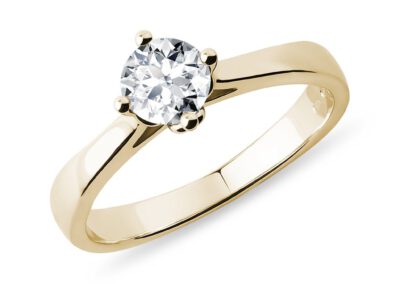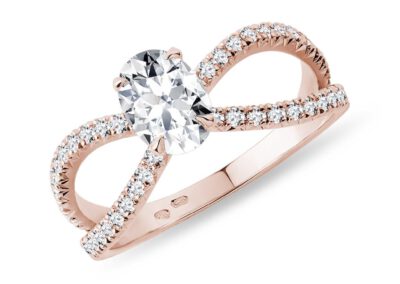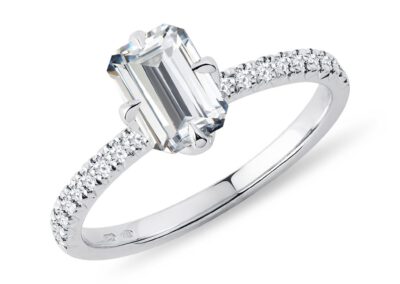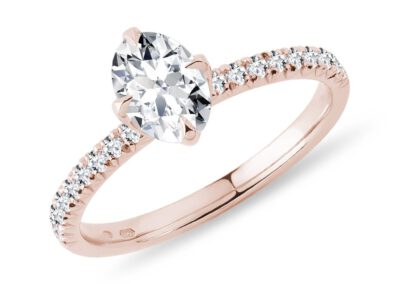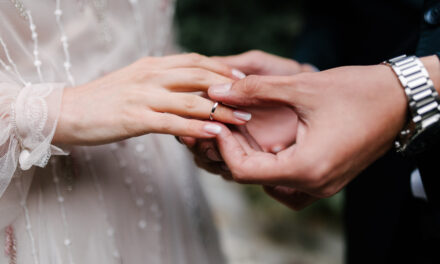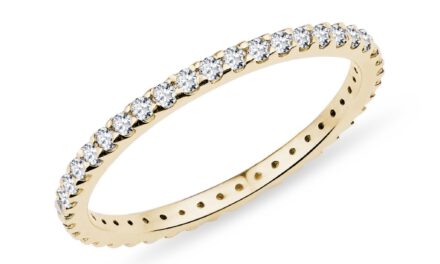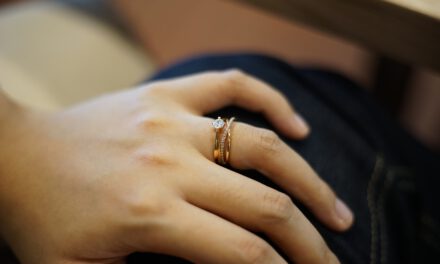With the still-going rise of modern fast fashion, ethical jewellery is a term frequently discussed for various reasons. Many may wonder what ethical jewellery means and why it is so important.
Generally speaking, ethical jewellery means jewellery that can be entirely traceable to its source. However, to fully understand ethical jewellery, we should distinguish between ethical and sustainable jewellery. Ethical jewellery focuses on the fair treatment of people involved in the entire jewellery-making act. That means their wages, working environment and overall well-being. On the other hand, sustainable jewellery concentrates on the environmental impact, including recycled jewellery, waste reduction and lab-made gemstones. Neither is better, but they’re both essential factors to evaluate in a brand’s supply chain.
Is Buying Ethical Jewellery Worth It?
So why should you buy ethical jewellery? And how much should you spend on it? The main reason is that you know that the people who make your jewellery are treated fair. Also, the quality of the jewellery is often better, as the people making it are content in their working environment. They will therefore treat your jewellery with more love and care. When you buy ethical jewellery, you’re supporting ethical brands. They care about their workers and avoid toxic materials and conflict gems. It’s crucial to know where was the material for your jewellery mined and who crafted your piece of jewellery. Only then will you know it’s sustainable, and you’ll feel good knowing you’re wearing ethical jewellery.
What to Look For When Searching for Ethically Sourced Engagement Rings
Knowing that your dream engagement ring is ethically-sourced is essential to many of us – we want to ensure that the gems used in our rings are conflict-free and come from sources that follow ethical standards. Here are some tips on how to find ethically sourced engagement rings.
- Look for conflict-free diamonds. These gems have not funded civil wars and are not associated with illegal activities, human rights abuses or unethical working conditions. Ask the jeweller to provide a diamond certification document, for example, the Kimberley Process Certification Scheme.
- Research the jewellery company. Ensure the company has a good reputation and is transparent about its sources. Look for those that have a formal commitment to being ethical and sustainable and are known and praised for it. You can also ask your friends and family for recommendations. Either way, make sure to look for an official certificate of authenticity.
Look for companies that are members of the Responsible Jewellery Council. The RJC is an international association that certifies jewellers to ensure they meet ethical, human rights and environmental responsibility criteria. - Consider alternatives. Instead of diamonds or other highly-popular gemstones, you could consider lab-grown gemstones, rings made from recycled metals, vintage rings or a family heirloom!
You may be lucky enough to have a unique engagement ring from your family history to wear. It is a fantastic way to honour your ancestors while wearing a stunning vintage ring. Also, if you’re, for example, not a fan of the ring setting, you may take it to a jeweller for re-setting. We’re sure your family won’t mind, as you’ll only adjust the ring setting and continue wearing your family heirloom.
Vintage rings, along with recycled rings, are the most ethical and environmentally friendly options. Vintage rings are often unique and one-of-a-kind and cost less than a modern ones. Look for them in second-hand shops or online. Finding one with an official document proving the ring’s history and authenticity may be challenging and time-consuming, but it will be worth it.
Where to Look for Ethically Sourced Engagement Rings
Now that you know what to look for in an ethically sourced engagement ring, you may not know where to look. Fortunately, there are many options available to you. These include local jewellers, online retailers and conflict-free jewellers.
Local Jewellers
The first place to look for the perfect ethical ring is, without question, your local jeweller. Many are dedicated to using ethically sourced gemstones and metals in their engagement rings. As always, be sure to ask about the source of the materials and gems and ask to see certificates proving their authenticity.
Online Retailers
A similar option is to look at online retailers. They also offer certification programmes guaranteeing that gems and materials are ethically sourced. If you’re really committed to sustainability, look for online retailers that provide lab-grown diamonds, which are conflict-free and environmentally friendly.
Conflict-Free Jewellers
Finally, the safest option is to look specifically for conflict-free jewellers. These jewellers specialise in ethically sourced diamonds and other ethical materials. They offer a wide range of certification programmes for conflict-free diamonds and are happy to provide additional documentation to prove their commitment to ethical sourcing.
What Are the Best Materials and Gemstones for Ethically Sourced Rings?
The most common precious metals in ethical jewellery are gold, silver and platinum group metals (PGMs). These are mined from the earth and must be certified by Fairmined, an organisation that assesses environmental factors and working conditions and approves metal mining operations. Another certification scheme is Fairtrade, which focuses mainly on gold jewellery.
In addition to purchasing certified jewellery, there is also the option of buying jewellery made from recycled metals. Loads of old silver or gold jewellery, televisions or even dental crowns are melted down to make new unique accessories. This option doesn’t require additional mining, produces fewer emissions and is considered the most ethical option today.
Similar to metals, gemstones also come with some ethical concerns. As you now know, diamonds especially are highly associated with conflict. These need to be certified by the Kimberley Process Certification Scheme. This scheme forbids trading between certified and non-certified countries. Another option is to use recycled gemstones that have been previously owned and returned to the supply chain. A modern alternative to recycled gems or mined gemstones is purchasing lab-grown diamonds, which are much more sustainable and ethical than genuine gemstones mined from nature.
Moissanite, rubies, sapphires and emeralds are the most familiar ethically-sourced gemstones nowadays. Lab-grown Moissanite closely resembles diamonds while being more affordable and sustainable. These facts, together with its wide range of colours, are putting moissanite in the spotlight when it comes to lab-grown alternatives to diamonds.
What is a Lab-Created Gemstone?
Lab-created gemstones, also known as “synthetic”, “man-made”, or “lab-grown” gemstones, are gemstones that have been artificially created in laboratories rather than in nature. Although it’s hard to believe, they are chemically, physically and optically identical to the natural gemstones mined from the earth. The only differences are that they have fewer flaws, a smaller carbon footprint, lower prices, and take less time to be created. Lab-grown gemstones are created in a controlled environment using advanced technology, making them more ‘perfect’ than those mined in nature.
The two main methods used to create a lab-grown gemstone are High Pressure-High Temperature (HPHT) and Chemical Vapor Deposition (CVD). The HPHT imitates the extreme conditions below the earth’s surface and transforms a gemstone seed into a genuine gemstone. On the other hand, CVD is a process in which a gemstone seed is heated in a gas chamber, causing crystalline layers to grow on the gem seed and form a genuine gemstone.
Purchasing an ethically sourced engagement ring is an excellent way of celebrating your love and commitment. Not only are you giving your partner a unique symbol of love, but you are also making a responsible choice that protects our planet and its people. With the wide range of ethical materials and gemstones available in today’s jewellery market, you’re sure to find the perfect ethically sourced engagement ring.

